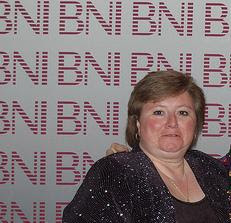Tax and Financial News for November, 2009
Year-End Reminders: April 2010 Can Hurt Less
The leaves are falling and winter is just around the corner — so, too, is the end of the year. With that comes the inevitable ritual of searching for ways to minimize your tax burden for 2009. With 10 months already gone, is there a lot you can do to lower this year’s tax bill? Yes, there is. And that is precisely what this article is about, but you must get started soon to keep Uncle Sam from cashing in on your hard work.
Income
The starting point for your tax savings quest is with your income. How much do you project bringing in from sources such as W-2 wages, interest, dividends and other income that is already on the books? Can you defer or, in some cases, accelerate their receipt?
First, let’s talk about deferring income. In most cases, it’s difficult to minimize salary income that’s already scheduled to be paid. However, your employer might be willing to put off payment of year-end bonuses. This is especially true when the payment has no significant effect on either the employer or the employee. For example, regular C-Corporations that report on an accrual basis can typically deduct bonuses that are owed to an employee who owns less than 50 percent of the company as long as those bonuses are paid by March 15 of the following year. If your employer usually pays bonuses on Dec. 31, it probably will not affect its bottom line to put the payment off until Jan. 1, 2010. Receiving that pay one day later can be a significant savings to you and other employees.
What’s the source of your interest income? If you are not already locked into an interest-bearing vehicle that pays at the end of a month, you could reduce taxable income by investing in a certificate of deposit or something else that pays interest after Dec. 31. The same is true for dividend-paying investments. When investing during the last part of the year, one trap you should be wary of is purchasing taxable income. This happens when you buy a mutual fund or stock that is guaranteed to pay a dividend before year’s end. Typically, the price you pay for the investment includes the amount that will ultimately be paid as a dividend. When the dividend is paid, the market price of the investment decreases and you are left paying unnecessary taxes.
How does your investment portfolio look? Believe it or not, there are a lot of folks with investments that are worth less than what they paid for them. The next two months is a good time to harvest a few losses to offset realized gains on other investments. However, remember that Uncle Sam will let you deduct only $3,000 in capital losses against other income, so be judicious in your sales.
Do you have other sources of income such as rents, installment sales or lease bonuses? As a cash-basis taxpayer, these sources do not become taxable to you until you receive them in cash. While care must be exercised to avoid what is called constructive receipt, it is possible to reduce income by putting payment off until 2010.
Constructive receipt is a concept that basically means you can’t avoid tax on income by refusing to accept payment for that which you are legally entitled. For example, say you own a corporation and it rents a building from you. If the business has the cash to pay the monthly rent, you can’t stop accepting rent payment to avoid taxable income.
Earlier, we mentioned accelerating income. Tax planning generally involves playing the rate game. Sometimes, accelerating income for years in which you expect a low marginal tax rate can enhance your overall tax savings. If 2009 is such a year, consider accelerating the income that you can in order to minimize taxes. Additionally, with looming deficits and the current administration’s stated intentions, there is a good chance that capital gains taxes will increase in the future. When that will happen is anybody’s guess, but the probability makes it a reasonable move to report long-term capital gains sooner rather than later.
Expenses
Expenses over which most individuals have control are itemized deductions, rental and Schedule C business expenses. With respect to itemized deductions and rental expenses, the most important thing to remember is that cash is king. If you pay the expenses before Dec. 31, you can deduct them. If you do not pay the expenses by year’s end, you cannot deduct them.
The cash rule can be difficult to follow if your checking account is a little light. Fortunately, there is always the plastic rule. If you pay your deductible medical bills, taxes and contributions with a credit card before year’s end, the deduction is still valid.
Don’t forget to maximize your retirement plan contributions as well. If your plan allows for it and if you can afford to do so, increase your contributions in the last two months of the year to reduce your taxable income.
Conclusion
Just because most of 2009 is now behind us does not diminish all opportunities to save on your tax bill. Give us a call and let’s look at your tax picture now — while there is still time to help you keep more of your hard-earned money.
This article is intended to provide resources for the tax and accounting needs of small businesses and individuals. The information contained in this informative letter is intended to provide general information on matters of interest in the areas of tax and accounting. Readers are encouraged to contact us regarding specific situations.
Ronda Zaragoza
Accountant
Eagle Eye Accounting
PO Box 20925
Albuquerque, NM 87154
505-550-2621
rondazaragoza@gmail.com
As always if you have any questions or comments please email me at rondazaragoza@gmail.com.
Friday, November 27, 2009
Subscribe to:
Post Comments (Atom)





No comments:
Post a Comment